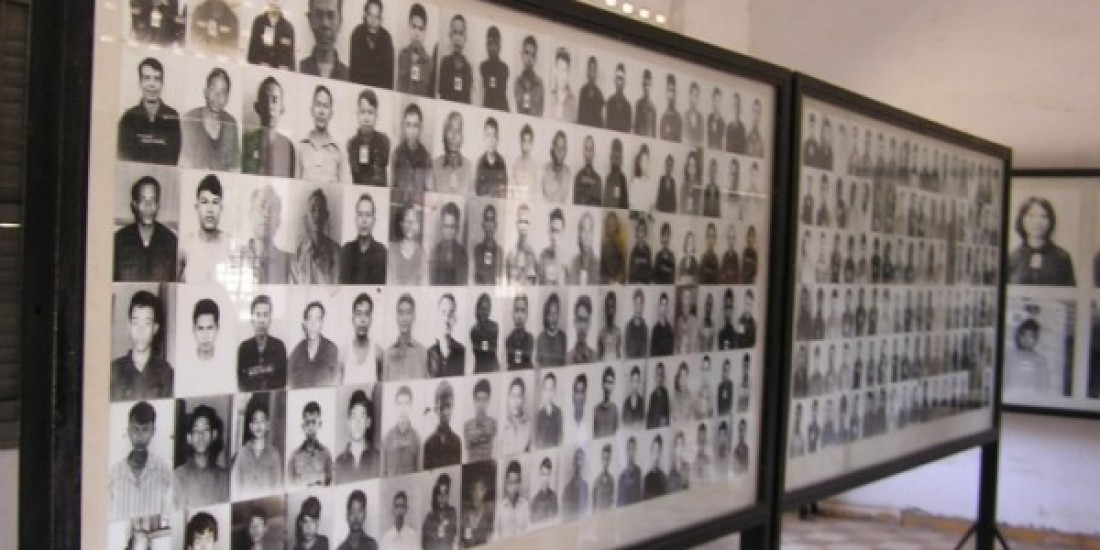Background: A Long Road to Justice
The Khmer Rouge regime governed Cambodia from 1975–1979. During its reign, the regime caused the deaths of approximately 1.7 million Cambodians, by execution, starvation and forced labor.
The regime systematically targeted Buddhist monks, minority ethnic groups, intellectuals, professionals, and political opponents. As the leadership’s paranoia grew, even members of the regime itself were susceptible to persecution.
In 1979, Vietnamese troops deposed the regime. Khmer Rouge soldiers waged guerilla warfare for another 19 years, which only ended with the death of Khmer leader Pol Pot in 1998.
The Extraordinary Chambers in the Courts of Cambodia (ECCC) began operations in 2006 to prosecute Khmer Rouge senior leaders and those “most responsible” for genocide, crimes against humanity, and other serious abuses.
The ECCC is a Cambodian court but also considered a hybrid tribunal. It consists of Cambodian and international judges, prosecutors, defense teams and administrative support, and is supported by the UN and international donors.
Victim participation and outreach is one of the ECCC’s defining features. Over 30,000 people have visited the court to watch trial hearings, and millions more have seen its proceedings on television or online. The court also has the power to award moral and collective reparations in the event of a conviction.
The ECCC has suffered repeated funding crises, and been criticized for alleged corruption and political interference. As of early 2011, the court has indicted five people. Only one has been convicted—Kaing Guek Eav, known as Duch—who is now appealing his sentence.
ICTJ's Role
Since 2005, ICTJ has worked with the ECCC and local civil society partners to maximize the court’s positive impact for victims and Cambodian society.
- Responding to victims’ needs: ICTJ has held workshops and seminars, as well as published discussion papers and shared recommendations with ECCC officials on a range of issues, including the right of victims to participate in trial proceedings and receive reparations. The ECCC has drawn on ICTJ’s reparations expertise in reforming its victim participation program.
- Outreach: ICTJ has assisted the ECCC and Cambodian NGOs in developing outreach strategies around the tribunal. The ECCC hosted an ICTJ expert meeting on best practices in outreach in March 2010, in which experts shared lessons from Sierra Leone, Democratic Republic of Congo and the former Yugoslavia.
- Maximizing the ECCC’s impact: ICTJ has held workshops with local NGOs, ECCC officials and victims’ legal representatives on how trials can help create a historical record of the past and demonstrate a model of justice that contributes to broader justice sector reform.
ICTJ’s work on the ECCC is part of our comparative research on hybrid tribunals and judicial awards of reparations, results which are shared with policymakers and practitioners on a regular basis.
